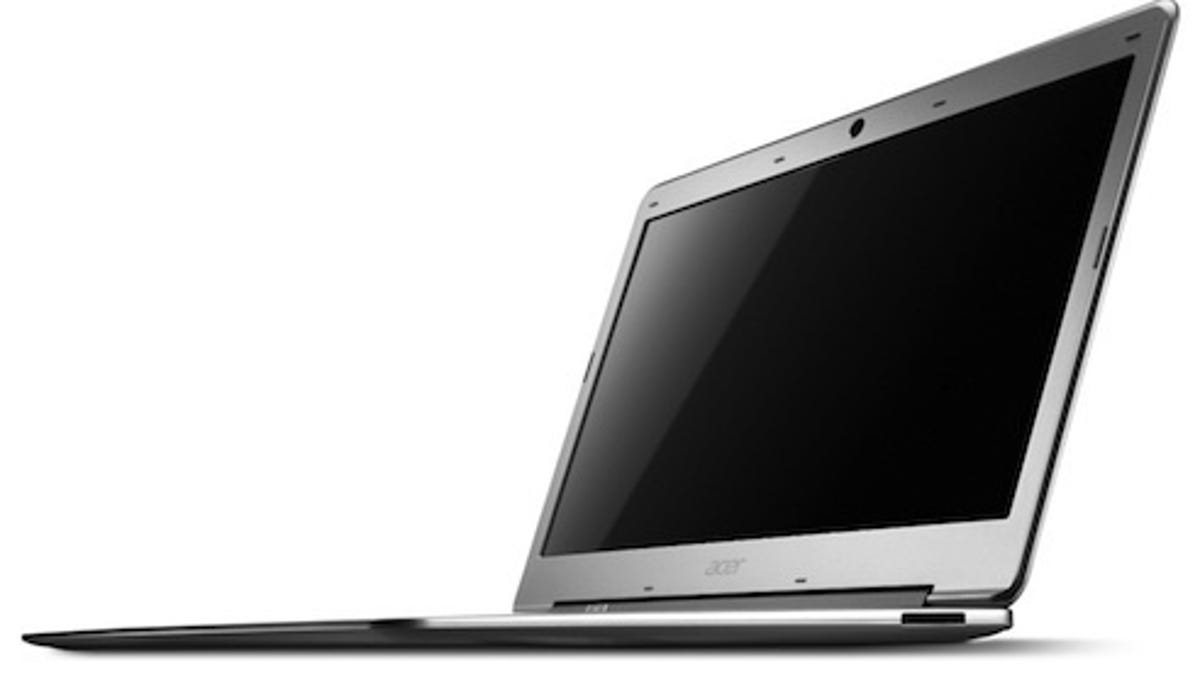Ultrabook growth to rocket through 2016, Juniper says
Shipment growth of the ultrathin computers could triple that of tablets, though tablets will retain the edge in total volumes, Juniper Research says.

Ultrabooks will be a key ingredient in PC vendors' strategies this year. And new research from Juniper Research suggests that focus will pay off handsomely.
Over the next five years, ultrabook shipments will grow three times faster than those of tablets, Juniper Research revealed in a new study today. Tablets, of course, have a significant head start, thanks to solid sales over the last couple of years. So by 2016, tablet vendors could send 253 million units to store shelves worldwide, compared to 178 million ultrabook units.
Even so, that's good news for Intel, which introduced the ultrabook concept. Intel has been saying for months now that it believes the lightweight, thin, and battery-saving notebooks can be a success in the marketplace. So far, the ultrabooks haven't been so popular, due mainly to their high price tags. But this year, those prices are expected to fall, which should propel ultrabook shipments to greater heights.
But it's not just pricing. According to Juniper, Windows 8, the next operating system from Microsoft, could also play a big role in the form factor's growth over the coming years.
"Windows 8 will play a pivotal role in driving Ultrabook adoption, with extended battery life, always-on-always-connected and other functionalities coming with Microsoft's next OS," Juniper said in a statement today.
Interestingly, Intel CEO Paul Otellini agrees with that sentiment, but not necessarily for those reasons. Instead, Otellini believes that the core function of tablets--touch support--will also play a critical role in ultrabook adoption.
"Starting with Windows 8, you have a mainstream operating system incorporating touch," Otellini said last month at the Intel Capital Conference. "Our view is that in the ultrabook lines, touch is a pretty critical enabler."
As ultrabooks and tablets thrive, however, netbooks will suffer. According to Juniper, in 2016, netbook shipments will be one-third the volume they are today, as the miniature notebooks are cannibalized by both tablets and ultrabooks.

